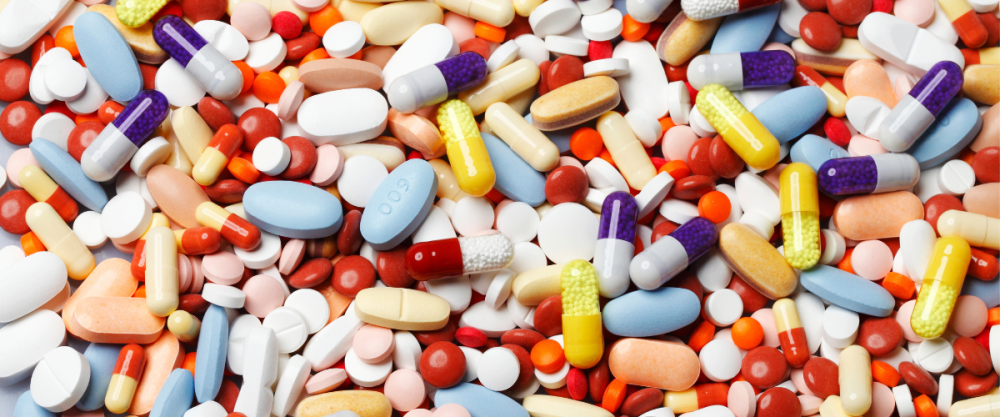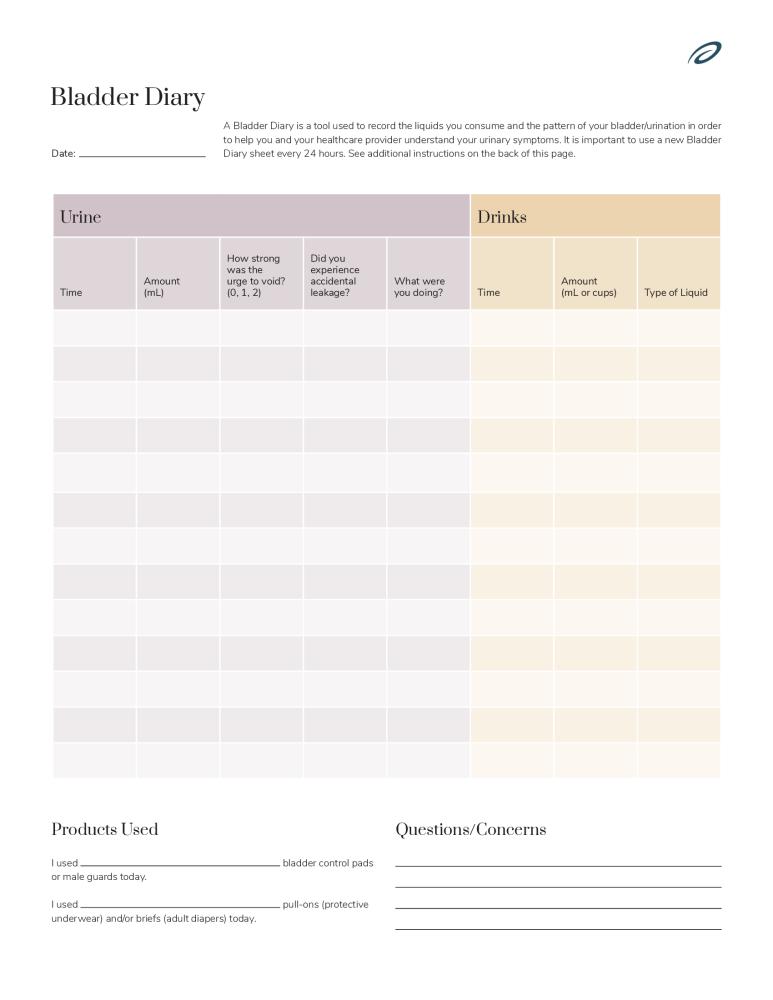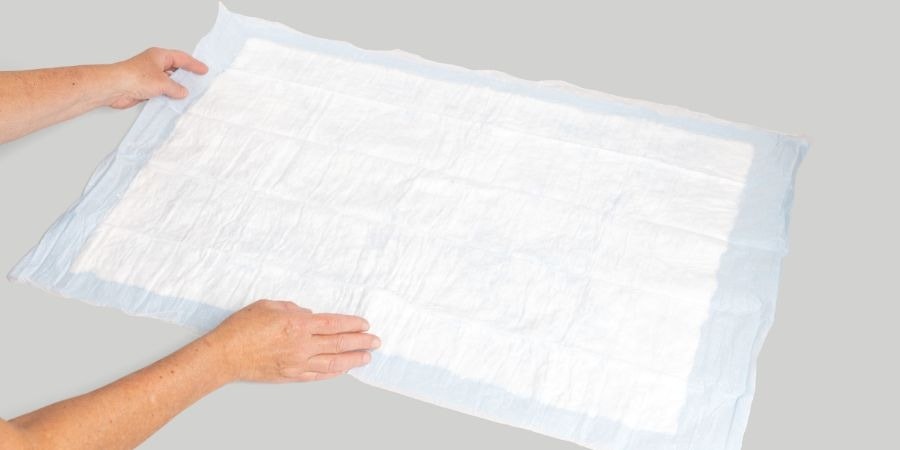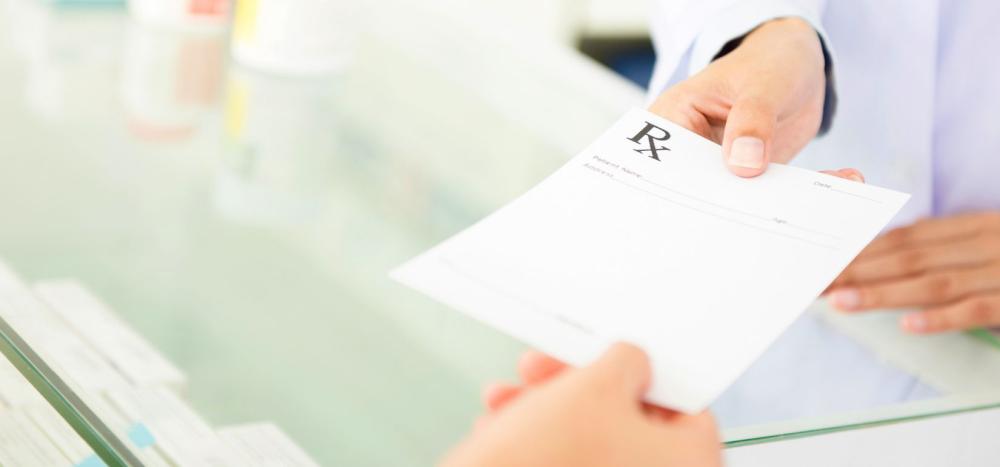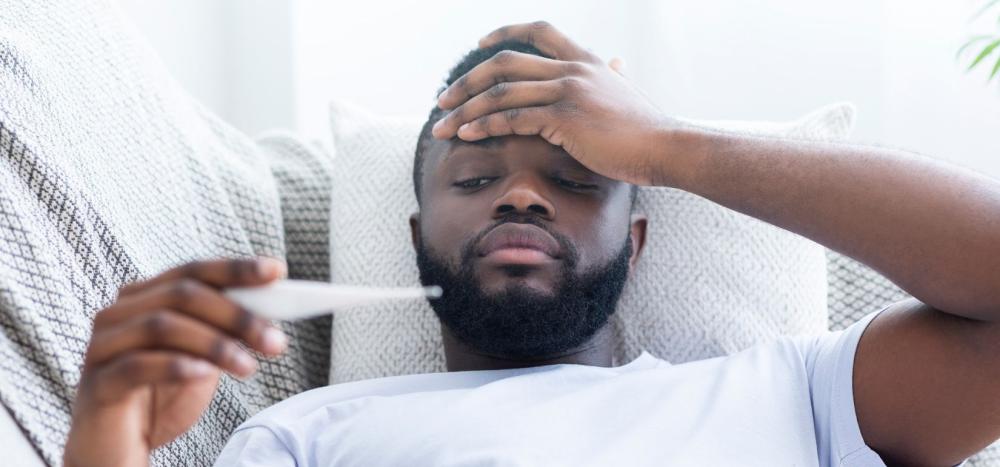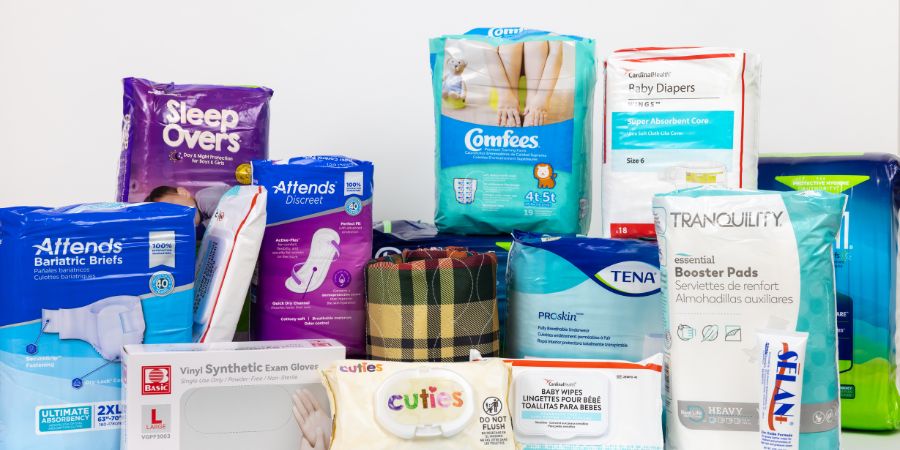Key Takeaways:
- Some medications can trigger bladder leaks by affecting your bladder muscles, nervous system, or urine production—even common ones like diuretics, antidepressants, or antihistamines.
- Tracking your symptoms and medications can help you and your provider pinpoint the cause and find the right solution.
- You don’t have to live with leaks—incontinence products and coverage through Aeroflow Urology can help you stay dry and confident.
Bladder leakage, referred to as urinary incontinence (UI), can be caused by various factors, including hormonal changes, weak pelvic floor muscles, urethral problems (intrinsic sphincter deficiency, urethral hypermobility), bladder issues (overactive bladder syndrome, pelvic organ prolapse), and prostate problems (benign prostatic hyperplasia). But did you know you might also experience leaks due to the medications you take?
It’s essential to be aware of which medications induce incontinence so you can find the proper treatment for your symptoms. Use this article to learn how diuretics, sedatives, narcotics, and even antihistamines can cause urine leakage and find solutions to your symptoms.
What Is Urinary Incontinence?
Urinary incontinence is the unintentional loss of urine due to a lack of bladder control.
Types of Urinary Incontinence
- Stress incontinence: Leaking urine when you cough, sneeze, laugh, bend over, or exercise.
- Overactive bladder (OAB): OAB, also called urge incontinence, presents itself as a strong and sudden urge to urinate that can cause accidental leakage. OAB may also cause more frequent urination.
- Overflow incontinence: Not being able to empty your bladder completely due to weak bladder muscles or blockage at the bladder neck from pelvic organ prolapse or BPH. This typically results in leakage.
- Functional incontinence: Having control of your bladder but experiencing urinary accidents after not being able to reach a toilet in time due to a mobility issue or physical or mental disabilities.
- Mixed incontinence: Experiencing two or more types of incontinence symptoms at once (for example, urge incontinence and stress incontinence).
Check your coverage for 100% free incontinence products now!
Check your coverage for 100% free incontinence products now!
Which Medications Cause Bladder Leaks?
There are many reasons a medication could be the cause of your bladder leakage, including:
- The medicines you take could reduce your bladder’s ability to resist urine leakage by increasing the pressure between the bladder and urethra.
- Your medications could disrupt your central nervous system (CNS), changing the way you empty your bladder.
- Medications could cause your body to produce more urine, leading to more frequent urination and/or urges to urinate.
Diuretics
Diuretics are sometimes referred to as water pills. These types of medications help eliminate excess water and salt from your body and are often used to treat high blood pressure. Diuretics increase the amount of urine produced by your kidneys.
Bladder Issues Caused by Diuretics
More urination than what’s typical (more than 8 times a day and more than 2 times a night).
Medication Names:
- Esidrix
- Oretic
- Hydrodiuril
- Lasix
- Bumex
- Maxzide
Antidepressants
Antidepressants are given to people who have depression. They alter the way neurotransmitters in your brain function, but they can also cause issues by weakening bladder contractions, contributing to higher post-void residuals. In extreme cases, antidepressants may eventually cause symptoms of overflow incontinence.
Bladder Issues Caused by Antidepressants
- Bladder contraction issues.
- Nocturnal enuresis (bedwetting).
- Decreasing your awareness of going to the bathroom.
Medication Names
- Bupropion
- Other common SSRIs (Celexa-citalopram, Paxil-paroxetine, Prozac-fluoxetine, Zoloft-sertraline, etc.).
Blood Pressure Medications
Blood pressure medications are alpha-adrenergic antagonists that are given to individuals with high blood pressure. These medications lower your blood pressure by opening up the blood vessels in your body. These medications are often used in men to treat BPH. However, these blood pressure medications may relax the smooth muscles in your bladder and neck, contributing to urine leakage. This problem occurs more commonly in women, but it may also occur in some men.
Bladder Issues Caused by Blood Pressure Medications
Relax the bladder neck, which helps stop and start the flow of urine, leading to leakage when laughing, exercising, coughing, or sneezing.
Medication Names
- Hytrin-terazosin.
- Cardura-doxazosin.
- Minipress-prazosin.
Narcotics
Narcotics are given to individuals to treat moderate to severe pain. They bind to opioid receptors in the CNS and, therefore, may interrupt the bodily signals that tell you you need to use the toilet. Because narcotics also cause drowsiness and sedation, they can lead to multiple issues with the bladder.
Bladder Issues Caused by Narcotics
- Relaxation of the bladder allows it to retain more urine, which can lead to urine leakage.
- Lack of concern about using the bathroom, resulting in accidents.
- Inability to begin voiding the bladder because the bladder is too relaxed.
- Straining the pelvic floor muscles during urination can lead to pelvic floor dysfunction.
- More frequent urination.
Medication Names
- Percocet-oxycodone.
- Morphine
- Demerol-meperidine.
Antihistamines
Antihistamines are over-the-counter medications used to treat allergic reactions to substances such as pollen, animal fur or hair, and dander. Antihistamines block your body’s response to histamines in your body, but they can also relax your bladder and cause issues for your urinary system.
Bladder Issues Caused by Antihistamines
The bladder relaxes, which causes urine retention. This can lead to leftover urine in the bladder, causing leakage.
Medication Names
-
Benadryl
-
Chlor-Trimeton.
Muscle Relaxants
Muscle relaxants are administered to individuals requiring treatment for spasticity, musculoskeletal pain, and muscle spasms. These medications affect your CNS and act as a sedative. Because of this, they can also cause drowsiness or sedation, which relaxes the urethra.
Bladder Issues Caused by Muscle Relaxants
- Relaxes the urethra, leading to leaking urine when coughing, laughing, sneezing, exercising, or lifting heavy objects.
- Frequent urination.
Medication Names
- Valium-diazepam.
- Ativan-lorazepam.
Sleeping Medications
Sleeping medications may be prescribed by a healthcare provider or obtained over the counter. These medications affect the central nervous system (CNS) by slowing it down to either induce sleep or maintain sleep throughout the night. Since sleeping medications keep you asleep, you may not wake up when your bladder is full, leading to nocturnal enuresis.
Bladder Issues Caused by Sleeping Medications
-
Nocturnal enuresis (bedwetting).
Medication Names
- Lunesta
- Ambien
Preventing & Treating Bladder Leaks
-
Bladder control products. Incontinence products are an excellent and easy way to manage bladder leakage caused by medications, especially if your healthcare provider recommends that you don’t stop taking your medication for other health reasons.
-
Medication & Symptom Tracking. You should monitor your body’s response to the medicines you’re taking. You can do this by keeping a bladder diary or a medication log and sharing the results with your healthcare provider.
-
Diet Changes. Certain foods and drinks can actually irritate your bladder and cause increased urges to urinate or more frequent trips to the bathroom. Avoid these foods to decrease bladder irritation:
-
Caffeine
-
Alcohol
-
Carbonated drinks
-
Tomato-based products
-
Spicy foods
-
Artificial dyes
-
-
Kegel Exercises. Pelvic floor exercises, such as Kegels, can increase your pelvic floor strength over time and reduce symptoms of stress incontinence. Both men and women can benefit from pelvic floor exercises, so find the type that fits best into your workout routine.
-
Fluid Restrictions. If you’re experiencing nocturnal enuresis, try limiting your fluid intake in the evenings until just before bedtime. Just be sure to avoid restricting your fluid intake during the day; dehydration can lead to urinary tract infections (UTIs) and bladder irritation as your urine becomes more concentrated.
When to See a Doctor
You should see your healthcare provider or a provider who specializes in UI, such as a urologist if you suspect that your medications are causing bladder problems. You should also see one of the providers mentioned if you begin experiencing the following symptoms:
- Leaking urine when coughing, sneezing, exercising, or lifting heavy objects.
- Dribbling urine after emptying your bladder.
- Feeling the sudden and intense urge to urinate more than usual.
- Urinating more than 8 times in a day or 2 times at night.
References
Publishing, H. H. (2019, August 28). Medications that can cause urinary incontinence. Harvard Health. https://www.health.harvard.edu/bladder-and-bowel/medications-that-can-cause-urinary-incontinence
Mayo Clinic. (2021, August 13). What to know about diuretics (water pills). Mayo Clinic. https://www.mayoclinic.org/diseases-conditions/high-blood-pressure/in-depth/diuretics/art-20048129
Doheny, K. (n.d.). 4 Medications That Can Cause Incontinence. WebMD. Retrieved May 12, 2023, from https://www.webmd.com/urinary-incontinence-oab/4-medications-that-cause-or-worsen-incontinence#:~:text=Antidepressants%20and%20Incontinence
Izci, F., Iris Koc, M., Bilici, R., Yalcin, M., & Bestepe, E. E. (2015). Urinary Incontinence during Sleep Associated with Extended Release Form of Bupropion HCI. Case Reports in Psychiatry, 2015, 1–3. https://doi.org/10.1155/2015/906294
Tsakiris, P., Oelke, M., & Michel, M. C. (2008). Drug-induced urinary incontinence. Drugs & Aging, 25(7), 541–549. https://doi.org/10.2165/00002512-200825070-00001
NHS. (2017, October 17). Antihistamines. Nhs.uk. https://www.nhs.uk/conditions/antihistamines/#:~:text=Antihistamines%20block%20the%20effects%20of
Disclaimer
Information provided on the Aeroflow Urology blog is not intended as a substitute for medical advice or care from a healthcare professional. Aeroflow recommends consulting your healthcare provider if you are experiencing medical issues relating to incontinence.



